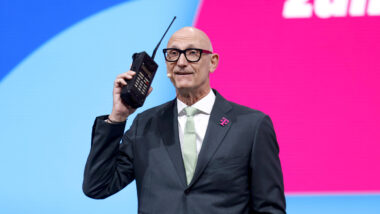In der Netzneutralitätsdebatte hat sich die Organisation Transatlantic Consumer Dialogue (TACD) zu Wort gemeldet und fordert in der EU ähnlich strenge Regeln, wie sie Anfang des Jahres die Federal Communications Commission (FCC) in den USA erlassen hat. Stellvertretend für die insgesamt neun Empfehlungen seien hier die ersten zwei angeführt:
- Governments and regulators must strongly defend the principles of openness and neutrality of the Internet as defined in this resolution via regulatory mechanisms, covering all layers of the Internet.
- Lawmakers and regulators should prevent ISPs and network providers from engaging in discrimination between content, services, applications, and devices unless it is necessary to implement reasonable network management. In particular, preferential treatment and zero-rating of specific content or services should not be permitted.
Lobend erwähnt der Bericht die Niederlande und Slowenien, die jegliche Diskriminierung beim Netzzugang verboten haben. Der FCC gibt er jedoch folgendes mit auf den Weg:
-
The exception for „unlawful“ traffic does not appear to be limited to traffic that has been found by a court to be unlawful. The exception seems to leave some degree of discretion to broadband providers to decide for themselves whether and how to discriminate against traffic they deem „unlawful.“ TACD is critical of this approach because ISPs are unlikely to give proper consideration to user privacy, limitations on copyright law, and collateral damage to free speech in their decisions about blocking or throttling particular applications, content, or endpoints.
TACD ist ein Zusammenschluss zahlreicher Verbraucherschutz- und Bürgerrechtsorganisationen aus Europa und den USA. Mitglied sind unter anderem die Verbraucherzentrale Bundesverband (VZBV) und die Electronic Frontier Foundation (EFF).




0 Ergänzungen
Dieser Artikel ist älter als ein Jahr, daher sind die Ergänzungen geschlossen.